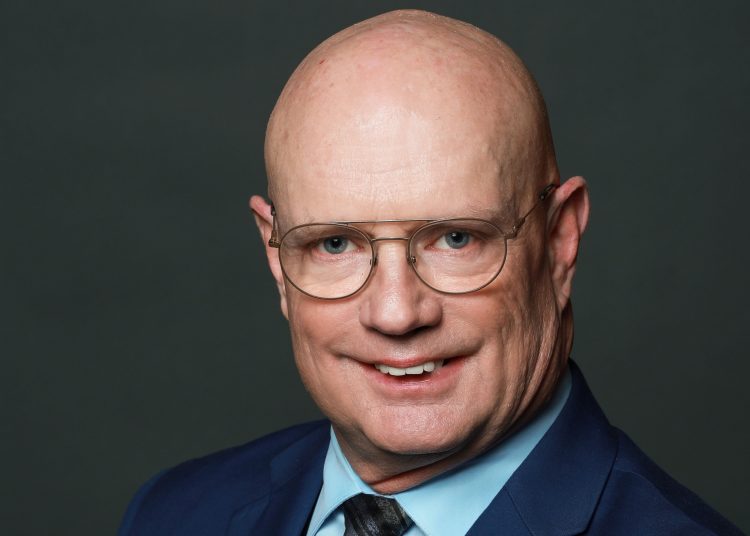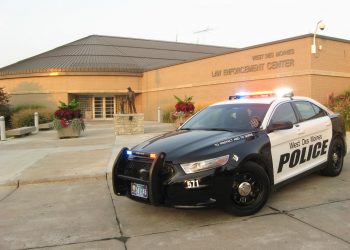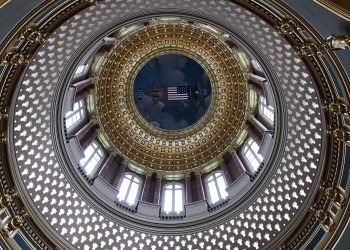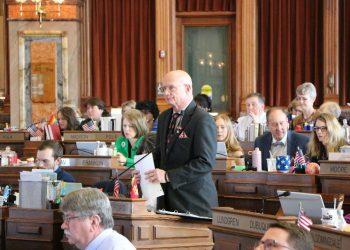It is Week 13 of the 2022 Legislative Session, and this week in the House we passed our final two budgets, Health & Human Services, and the Rebuild Iowa Infrastructure Fund (RIIF). Discussions also continued on one of the Governor’s top priorities, greater parental choice in Education. In this edition of Freedom Watch, I will highlight this discussion on School Choice, by offering the differing opinions and concerns, and my perspective in response.
There has been much discussion on the Governor’s plan to expand parental choice in education, so that those students having the most need could have additional options. The Governor’s plan is very targeted and would only impact about 10,000 students. The Senate passed the Governor’s proposal and sent it to the House. I support this effort, but there is currently not consensus in the House Republican caucus on this issue, and discussions are continuing.
There are a number of different reasons why some do not support this initiative.
There is concern that once state dollars are provided for parents to send their kids to private school, government would eventually add onerous requirements and mandates in exchange for taking the money, resulting in the same problems in private schools we are facing with public schools, such as in the indoctrination of certain left-leaning ideologies we are now seeing take place in some public schools. I understand and share this concern, however there are already millions of state dollars provided to students each year that go outside the public-school setting, through programs like the Iowa Tuition Grant and others. Additionally, in other states that have similar programs, there has thus far been no successful effort that we are aware of to force private schools to adopt rules that would ultimately make them carbon copies of public schools.
There are those who feel it is wrong for public dollars to go to private schools. This philosophy makes sense if you believe we are funding institutions instead of children. I believe we should be funding children, not the education establishment, and therefore I support a system in which the money follows the child to the institution that parents feel is the best fit for them.
There are those who believe that if this program is put in place, then the exact same requirements and rules that public schools have should be applied to any private school that accepts state money, similar to the concern highlighted above that this might happen in the future. The argument is that otherwise, there will not be a level playing field and that this is unfair for public schools. Again, this argument makes sense if you believe we are funding the institution of education as opposed to the student. Since I believe we should be funding the student, I do not believe this argument makes sense. Yes, the rules may be different because the government will have rules for public schools that do not and should not apply to private schools, but if the whole point is to have differing options for parents and students so that the best fit can be found and the best education offered, then the one-size fits-all approach makes no sense.
Finally, I have frequently heard the concern that public schools will be hurt if public money is allowed to follow the child. This seems to me to necessitate the belief that public schools will be unable to compete with private schools. I do not believe this, but if so, it is even greater justification to expand school choice now, if in fact the priority is the best education possible for our young people, as opposed to funding the institution of public education.
As I have said several times before, this discussion has taken on a greater sense of urgency in light of what is being exposed in some of our educational institutions. There is dangerous indoctrination to anti-American values taking place in some of our public schools. A Marshalltown teacher informed me a few weeks ago that more than three-fourths of her students refuse to stand for the Pledge of Allegiance, and she was disciplined for simply trying to educate students on why we say and show respect for the Pledge. When we passed legislation last year to mandate that the Pledge be said every day in public schools, I had several teachers contact me, expressing anger that we would mandate such an “antiquated” thing as saying the Pledge of Allegiance to our flag. It was then that I realized the depth of the challenge we are facing in our public schools, and the very real danger these teachings pose to the future of our Republic.
House Government Oversight Committee Hearings last year exposed Critical Race Theory and LGBT ideology being taught in the Ames Community School District, including to elementary school students. Just last week, I was made aware that a middle school in the Des Moines school district held an assembly and provided a book full of Critical Race Theory concepts, in clear violation of the law we passed last year. Meanwhile, books that are clearly pornographic are sitting in public school libraries in at least eighty school districts in our state, and when parents challenge these books, school administrators often ignore their concerns and attempt to justify why filth should remain accessible to our young people. This must stop.
I believe that most of our public schools are doing it right, but many are not, and some are badly failing our children, mostly in larger urban areas. We can and have passed numerous laws to try and get this under control, but it is clear that the education establishment will do everything it can to resist these efforts. I believe that in order to have all of our public schools once again teach good citizenship, the basic knowledge essential to a good job and achievement of the American Dream, educate as opposed to indoctrinate, and respect the authority and beliefs of parents, it is time that we create competition and choice by fundamentally changing how we fund education. Whatever changes we initially adopt, the focus must be on funding students, not institutions; and the competition that follows will improve student outcomes and lift both public and private schools to new heights.














